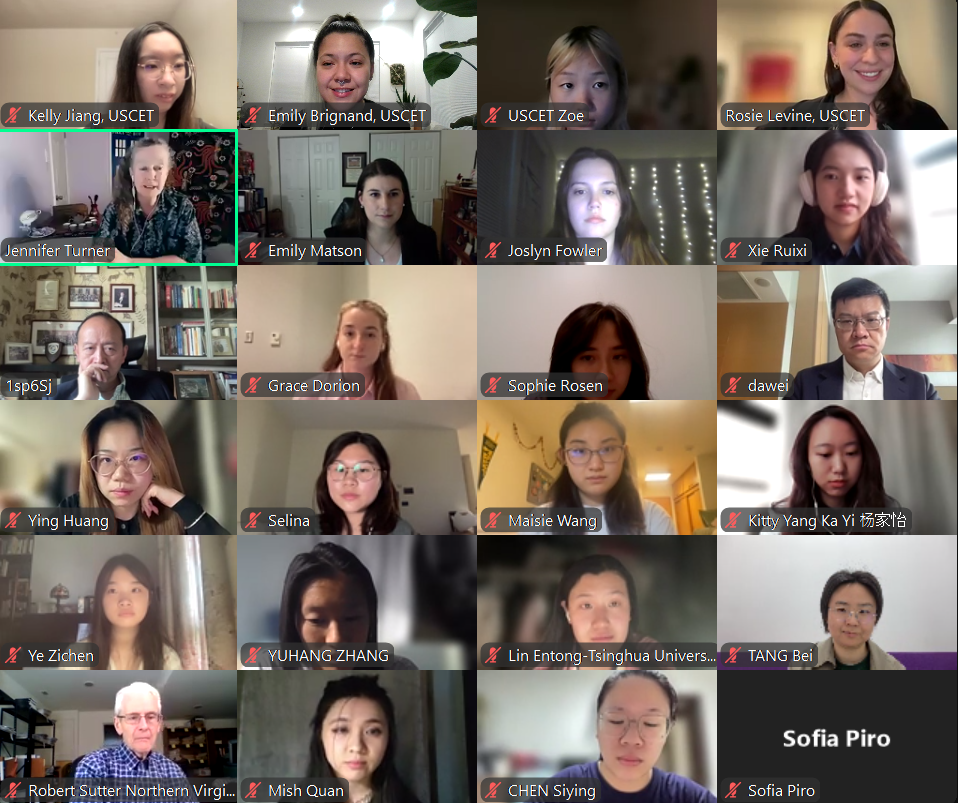

On April 25, USCET hosted its final meeting of the 2025 Students Finding Common Ground program. Each of the four project teams, co-presented by an American and a Chinese student, shared their semester-long collaborations on topics including public health, education, peace and conflict resolution, and environmental sustainability. After each presentation, mentors and advisors provided thoughtful feedback to help students reflect and further refine their ideas.
Final projects will be posted in summer 2025.
Below are updates from our four student group projects as of April 2025
—————
Climate and Environment Group Update
The Climate and Environment team tackles the shared challenge of energy and water use in American and Chinese universities. Their research, supported by expert interviews and campus surveys, identified massive usage and inconsistent habits as common issues across campuses. The team’s final deliverable will include a handbook to encourage student-led initiatives and promote practical steps students can take to improve energy and water efficiency.
Education Group Update
The Education team conducted a survey comparing U.S. and Chinese approaches to teaching history. With over 90 valid responses, their research revealed that while most Chinese students learn history primarily through lectures and textbooks, American students—though also familiar with traditional methods—believe that history is best understood through multimedia such as movies, museums, and travel. The team offered innovative solutions for developing a more nuanced understanding of history among young people, such as bilateral workshops, transnational “Parallel Historiography Lectures,” and a micro-history approach to foster empathy and curiosity across borders.
Peace and Conflict Resolution Group Update
The Peace and Conflict Resolution team explored the potential for U.S.-China collaboration on global peacebuilding, using the Russia-Ukraine war as a case study. Their research included interviews with students from George Washington University and Tsinghua University, as well as a video project documenting their process. Key lessons highlighted the power of dialogue, the importance of sensitivity, and the underrepresentation of youth voices in diplomacy.
Public Health Group Update
The Public Health team focused on the pressing issue of mental health among Chinese international students in the United States. Through literature review, surveys, and interviews, the group found that many Chinese international students do not seek professional help despite significant anxiety and pressure, citing barriers such as cultural stigma, language difficulties, and financial constraints. Their primary deliverable is a practical handbook featuring available mental health apps, counseling services, and emergency support resources.
